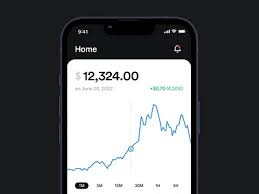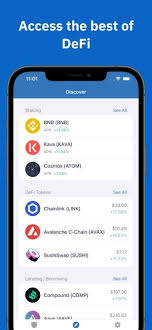
Trust Wallet itself doesn’t set a minimum deposit; minimums depend on the cryptocurrency or DeFi platform you’re using.
Understanding Minimum Deposits in Trust Wallet
Does Trust Wallet Require a Minimum Deposit for All Cryptocurrencies?
-
No Fixed Minimum: Trust Wallet doesn’t have a universal minimum deposit. Requirements vary by cryptocurrency and network.
-
Network-Specific Rules: Blockchain networks may set their own deposit limits based on transaction costs or protocols.
Factors Affecting Minimum Deposit Amounts in Trust Wallet
-
Transaction Fees: High network fees, like those on Ethereum, can affect the minimum deposit required.
-
Blockchain Type: Each blockchain has different fee structures, influencing deposit amounts.
-
Token Standards: ERC-20 or BEP-20 tokens may have specific deposit minimums.
-
Third-Party Services: Providers like Simplex or MoonPay might impose separate minimum deposit amounts.

Minimum Deposit for Popular Cryptocurrencies in Trust Wallet
What is the Minimum Deposit for Bitcoin (BTC)?
-
No Minimum Set by Trust Wallet: Trust Wallet does not set a minimum deposit requirement for Bitcoin (BTC).
-
Network Minimum: The Bitcoin network requires a minimum of 0.00000001 BTC, which is the smallest unit of Bitcoin, known as a “satoshi,” to activate a wallet and make it functional.
-
Activation Requirement: This ensures that the wallet can properly receive and send transactions.
Minimum Deposit Requirements for Ethereum (ETH)
-
No Minimum Set by Trust Wallet: Trust Wallet does not impose a minimum deposit requirement for Ethereum (ETH).
-
Network Minimum: The Ethereum network requires a minimum of 0.00000001 ETH, known as a “wei,” which is the smallest unit of Ethereum.
-
Transaction Functionality: This ensures that the wallet can receive and send transactions within the Ethereum network.

How Trust Wallet Handles Small Deposits
Can You Make a Deposit Below the Minimum in Trust Wallet?
-
No Universal Minimum: Trust Wallet doesn’t set a universal minimum deposit, but network-specific requirements apply (e.g., 0.00000001 BTC, 0.00000001 ETH).
-
Network Requirements: Some networks, like XRP, have activation fees (e.g., 20 XRP for wallet activation).
Impact of Small Deposits on Your Wallet Balance
-
Activation Issues: Deposits below the minimum may prevent wallet activation and cause transaction failures.
-
Non-Refundable: Some networks, like XRP, reserve minimum deposits that are non-refundable.
-
Transaction Failures: Insufficient balance may result in failed transactions.
Transaction Fees and Minimum Deposit
How Do Transaction Fees Affect Minimum Deposit Limits?
-
Network Requirements: Blockchain networks set minimum deposits, such as 10 XRP for activation, separate from Trust Wallet’s policies.
-
Trust Wallet’s Role: Trust Wallet follows blockchain fee structures but does not set minimum deposit limits itself.
Are There Any Hidden Fees for Small Deposits in Trust Wallet?
-
No Hidden Fees: Trust Wallet does not charge hidden fees; transaction costs are determined by blockchain networks.
-
Third-Party Fees: Third-party services (e.g., exchanges) may charge additional fees, disclosed before transactions.
-
Network Fees: Blockchain networks like Ethereum and Bitcoin require transaction fees, which can be adjusted within Trust Wallet for optimal cost.

Minimum Deposit for Staking in Trust Wallet
What is the Minimum Deposit to Start Staking?
-
Ethereum (ETH): 0.025 ETH
-
Solana (SOL): 0.01 SOL
-
Cosmos (ATOM): 0.01 ATOM
-
BNB (Binance Coin): 1 BNB
-
TRX (TRON): 1 TRX
-
SEI: 1 SEI
-
OSMO: 0.000001 OSMO
These minimums are set by the respective blockchain networks, not Trust Wallet.
How Does Staking Affect the Minimum Deposit Amount?
-
Network-Specific Requirements: Each blockchain network has its own staking minimum.
-
Trust Wallet’s Role: Trust Wallet follows the network’s staking requirements without adding additional limits.
-
Staking Rewards: Higher staking amounts generally yield higher rewards.

Trust Wallet’s Minimum Deposit for DeFi Investments
Minimum Deposit for DeFi Projects on Trust Wallet
-
No Minimum by Trust Wallet: Trust Wallet does not impose a minimum deposit requirement, but individual DeFi platforms may have their own.
-
Example: Some platforms, like Aarnâ Protocol, may require a minimum of $100 in stablecoins.
How DeFi Platforms Influence Minimum Deposit Amounts
-
Smart Contract Requirements: Some DeFi platforms set minimums to ensure efficient operations and manage transaction fees.
-
Liquidity Pool Sizes: Minimums may be set to maintain adequate liquidity.
-
Risk Management and Tokenomics: Platforms may use minimum deposits to manage risk and align with their economic model.

Best Practices for Managing Minimum Deposits in Trust Wallet
How to Ensure You Meet Minimum Deposit Requirements
-
Check Network and DeFi Specifications: Review the specific minimum deposit requirements for the blockchain or DeFi platform you’re using.
-
Maintain Sufficient Funds: Ensure your wallet has enough cryptocurrency to meet the minimum and cover transaction fees.
What to Do if Your Deposit Doesn’t Meet Minimum Requirements
-
Top Up Your Wallet: Add more funds to meet the minimum deposit.
-
Contact Support: Reach out to the platform’s support if you’re unsure about requirements.
-
Avoid Transaction Failures: Always verify the minimum deposit before initiating transactions.
Does Trust Wallet have a minimum deposit requirement?
No, Trust Wallet does not impose a minimum deposit requirement, but individual cryptocurrencies and platforms may have their own.
What is the minimum deposit for Bitcoin on Trust Wallet?
For Bitcoin, the minimum deposit is determined by the Bitcoin network, which requires at least 0.00000001 BTC to activate a wallet.
Can I deposit less than the minimum in Trust Wallet?
While Trust Wallet itself does not set minimum deposit amounts, each blockchain may reject deposits that do not meet network-specific minimums.
Leave a Reply